The Big Handshake
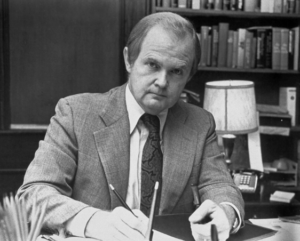
The first time I shook the hand of a United States Senator, I thought it was a big deal. This was before I learned that any politician would shake your hand, and do most anything else you wanted, for the right price, as this story illustrates.
The handshake occurred in 1979. I was a junior lawyer in Washington, D.C., working with Rod Hills, a former senior adviser to President Ford and Chairman of the Securities and Exchange Commission. A Senate committee held hearings on amendments to the Employee Retirement Income Security Act (“ERISA”), which governs employee benefit plans. The committee asked Rod to testify. He assigned me to write his testimony.
I was not happy about this. ERISA is extremely complicated. Even U.S. Supreme Court justices seem to struggle with it, calling it a “reticulated statute,” meaning crisscrossed, intertwined, and convoluted. I was capable of understanding only small parts of it for brief moments, and when I tilted my head to one side, those few insights would slide out of my ear.
Working under a tight deadline, I crawled through ERISA’s dense thicket of “reticulated” subsections, drafted a lengthy statement that made no sense but had a lot of big words in it, and handed it off to Rod, convinced he would cut it to shreds and question the wisdom of my continued employment.
To my surprise, he sent it to the Senate committee with a couple of minor changes. I assumed he didn’t have the time to read it carefully. For days, I lived in fear the committee would call to tell him someone forged his signature to an utterly stupid statement. As time passed and the committee didn’t rat me out, I learned my draft probably died under a blizzard of written submissions. Forty witnesses filed such statements, and over a hundred interested parties posted lengthy comments. As we’ve recently learned, members of Congress don’t even read the statutes they enact, so it’s hard to imagine they pay much attention to the mountain of background material submitted by the public. In this case, I’m greatly thankful for their negligence.
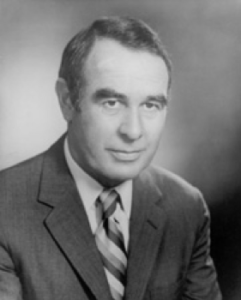
On the day of Rod’s testimony, he and I entered a cavernous room and sat at a table looking up at a row of high-backed chairs stretching across an elevated dais. All the chairs were empty except the one in the middle. Of the committee’s fifteen senators, Harrison “Pete” Williams was the lone ranger that day, and he only showed up because he chaired the committee and had to run the hearing. Serving his fourth term, Williams was known as New Jersey’s “senator for life” because of his enormous popularity, and he was powerful, having led the charge to enact reams of social welfare laws, including ERISA.
He introduced Rod in glowing terms. Rod spoke eloquently and answered questions. I didn’t understand anything he said, but Senator Williams seemed pleased.
Afterwards, the senator joined us on the floor of the hearing room, and Rod introduced me to him, whereupon the big handshake took place.
I was young, green, and not the senator’s constituent. He had every reason to ignore me, but he asked about my family, my move from California, and my impressions of Washington, and he seemed genuinely interested in my answers. When we left the hearing room, I liked him and felt privileged to have met him.
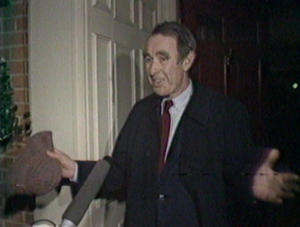
My warm feelings didn’t last long. I was reading the newspaper one night with the television on in the background when I heard Senator Williams’ name mentioned. I looked up to see a live camera filming government agents standing at the door of his house. A few minutes later, an NBC reporter stuck a microphone under his chin. Smiling nervously, Williams said he’d been served with an indictment, but he didn’t know what it was about.
This is what it was about. In 1978, the FBI set up a sting operation code-named ABSCAM, using Melvin Weinberg, a convicted con artist, to run it. Weinberg created a fake company called Abdul Enterprises and supervised a cast of FBI agents, who posed as Arab sheikhs seeking to invest millions of dollars in the United States. They offered bribes to politicians to secure government advantages for the phony company.
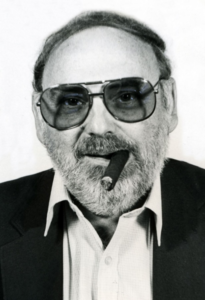
The sting was wildly successful. A big crowd of politicians fell for it, including six members of the House of Representatives, three Philadelphia City Councilmen, the Mayor of Camden, New Jersey, and one U.S. Senator, my handshake buddy, Pete Williams.
A few weeks after I shook his hand, he shook the hand of Richard Farhart in the Plaza Hotel in New York. Farhart was an FBI agent out of the Cleveland office. Of Lebanese descent, he wore a sheikh’s traditional headdress and flowing robes and feigned a Middle Eastern accent. “I would like to give you some money,” he told Williams. The senator was horrified, immediately exclaiming, “No, no, no, no, no!”
Unfortunately, the bribe itself didn’t horrify him. It was the form of payment, which he considered too easy to trace. In subsequent meetings with the ersatz sheikh, Williams negotiated a complex deal with Abdul Enterprises, whereby the company would issue 18% of the shares of a titanium mining enterprise to Williams’ lawyer with the understanding that the lawyer would deliver the ownership interest to the senator. In exchange, Williams promised to use his position to steer government contracts to the venture.
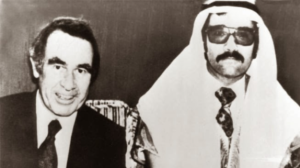
Williams vehemently denied all of this. “I know I broke no laws.… time, history, and almighty God will vindicate me,” he thundered, but when it came out that the FBI tape-recorded his meetings with the sheikh, nothing short of almighty God’s divine intervention could have saved him. At his trial in 1981, his lawyers were reduced to arguing he hadn’t really taken a bribe because the titanium mining company was fake and its stock had no value. When that failed, they complained that the Attorney General targeted him for prosecution solely because he supported Ted Kennedy for president over Jimmy Carter. Not surprisingly, the jury came back in record time with guilty verdicts on nine counts of bribery and conspiracy.
Williams remained free on bail while he appealed the conviction. Meanwhile, the Senate Ethics Committee asked him to resign. He refused. The committee moved to expel him, and he demanded a full hearing on the Senate floor. The committee played the damning tapes. Senator Inouye, who acted as his counsel, didn’t ask the senators to disbelieve their lying eyes. Instead, he railed against the FBI. “The United States government had no business testing the weakness of United States senators,” he said, and he warned the senators to be wary of investigations into their own activities. Inouye’s transparent “vote-for-Pete-because-next-time-it-could-be-you” defense didn’t work. Knowing the tally was against him, Williams resigned just before the roll call vote.
He lost the appeal of his conviction in 1983, served two years in a federal penitentiary, and a third in a halfway house. His request for a pardon from President Clinton failed. Despite the FBI’s tapes, he maintained his innocence until he died of heart disease in 2001 at the age of 81.
Had he not resigned, Senator Harrison “Pete” Williams would have been the first senator expelled from Congress since 1862 when Jesse Bright of Indiana sold guns to the Confederacy, and he was the first senator to go to jail since 1906 when Joe Burton of Kansas served a stretch in the big house for taking a bribe in a mail fraud case.
But, hey, I got to shake his hand!
Post Script: Tom Paxton wrote and recorded a hit song about ABSCAM entitled, I Thought You Were An Arab. An excerpt: “When you handed me the briefcase full of cash,/I accepted with a wink./You can catch it on the evening news you rat,/Now I’m headed for the clink.” And: “I smiled for the camera,/I couldn’t see it from my seat./So I thought you were an Arab,/And all the time you were the heat.”
“There is no distinctly American criminal class except Congress.” – Mark Twain



July 8, 2018 @ 1:05 pm
Great story, Ken. Unfortunately, there are plenty of other examples out there. I like Alcee Hastings of Florida, who was impeached by the U.S. House of Representatives and convicted in the U.S. Senate for bribery, and thereby removed as a federal judge. No problem — Hastings simply ran for Congress and was elected to the U.S. House of Representatives, where he serves today, representing a district in Florida.
July 9, 2018 @ 8:20 am
Thanks, Steve! Hastings is a sordid story. You’d think there’d be a rule about disqualification after conviction, but Congress would have to pass it, so there’s probably no hope of that.
July 4, 2018 @ 5:43 am
Ken, your writings always intrigue me. Funny how 40 years ago Senate investigations went largely unheard/unnoticed by a large per cent of the population in the US. With social media ( and Fake news), scandals and improprieties seem to be an everyday occurrence in today’s world.
July 4, 2018 @ 8:26 am
Thanks for reading my posts, Steve. Good observation. The advent of cable news 24 hour coverage and social media probably account most for the heightened awareness and the polarization of viewpoints. Not in a good way, in my view.
July 2, 2018 @ 9:09 am
I really enjoyed this story, as I do all of your tales. Have you got another book in the works? I love your writing. Can’t get enough.
July 2, 2018 @ 1:41 pm
Thanks, Tracy! My next book is working its way through the publishing process. It should be released in about three months. Great to hear from you.
June 30, 2018 @ 10:33 am
Good example of why I feel the need to go home and take a shower after shaking hands with most politicians. Great story, and well told, Ken.
June 30, 2018 @ 11:40 am
Thanks, Frank!
June 30, 2018 @ 7:08 am
Deception has many faces! Your story spurred my interest and I read a bit more about the Abscam sting. Mel Weinberg just passed at the end of May this year. I’m amused by the “scam” in the sting name. Thanks for an interesting read!
June 30, 2018 @ 8:46 am
Great to hear from you again, Bronwyn. I saw that Weinberg passed away in the LA Times, having lived into his mid-nineties. His obituary was colorful, to say the least. In researching this, I learned that the 2013 movie, American Hustle, starring Christian Bale and Amy Adams, was a fictionalization of his life. He was a consultant on the set, spawning several interesting 2013 newspaper articles about him. There was a lot of criticism of the FBI at the time of Abscam for tapping into his con artistry in exchange for leniency on a jail term. Abscam was also apparently the first time the FBI used videotape against members of Congress, another controversial move at the time. It was a fascinating case.
June 29, 2018 @ 8:04 pm
Another interesting one and well told as always. Wish I’d known you were in DC during those years as we could have met for lunch and caught up!!
June 30, 2018 @ 8:24 am
Thanks, Susan! Wish I’d known you were there, too. My stay was short-lived, 1978–80. Had some interesting experiences there, but my law practice drew me back to LA.
June 29, 2018 @ 6:33 pm
Great story and handshake Ken!
June 30, 2018 @ 8:20 am
Thanks, Larry!
June 29, 2018 @ 12:52 pm
Ken,
I never tire of your stories.
Keep them coming.
June 29, 2018 @ 2:44 pm
Thanks, Burr!
June 29, 2018 @ 11:24 am
You are one great story teller, Ken. Always love to read your latest.
June 29, 2018 @ 12:25 pm
Thanks, John! Great to hear from you.